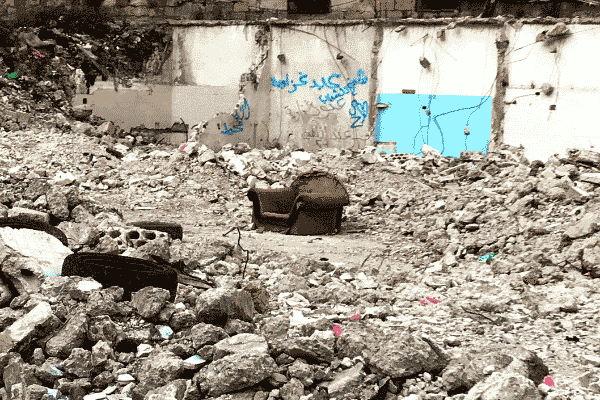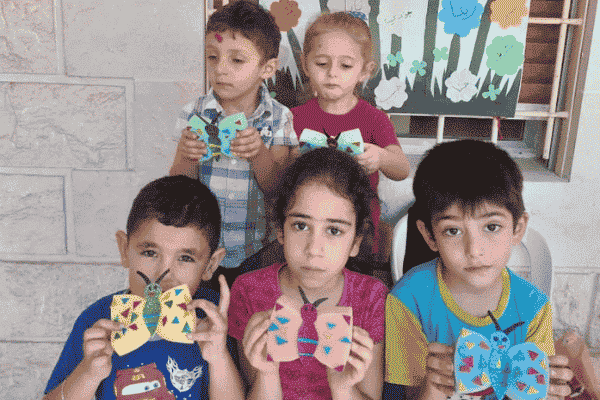"Never let a good crisis go to waste".
This famous "teaching" promoted by the former British Prime Minister Winston Churchill at the end of the Second World War has found in the current President of Turkey, Recep Tayyep Erdoğan, a faithful disciple.
Turkey as an international mediator
In the name of the good relations that exist with both Moscow and Kiev, Erdoğan has established itself as the main international mediator in the Ukrainian crisis. For this role, it has received the applause of its NATO partners, of which Turkey has been a member since 1952, despite its clear refusal to accept the request for Finland and Sweden to join the Atlantic Alliance.
It is not yet clear how and if Erdoğan will manage all his multifaceted "friendships" and, above all, whether his intentions in seeking an answer to the crisis between Russia or Ukraine are serious and real.
At the moment, despite the various direct contacts between Moscow and Ankara, there are no concrete solutions that suggest a peace. What is evident, on the other hand, is the growing (and massive) military operations of the Turkish army in the areas northwest of Syria.
Putin must have given the green light to Erdoğan to launch an offensive against the "Kurdish terrorists".
The partition of Syria
As is known, the Syrian Republic is about 80% under the control of the government of the disputed President Bashar al-Assad, which enjoys the support of Russia and Iran. The north of the country is the hot spot. The territories on the west bank of the Euphrates River, in fact, are controlled by the army and militias close to Turkey; on the east bank a long strip of territory is controlled by the Syrian Democratic Forces, led by the PKK (Kurdistan Workers' Party). The latter is considered a terrorist organization by Turkey, the USA and the European Union. Erdoğan has always wanted to annihilate it.
In late May, Ankara said it wanted to create and militarize a 30-kilometer "safe zone" along the southern border. "We will cleanse Manbij and Tal Rifaat of terrorists," the Turkish dictator said two weeks ago. The terrorists in question are the Kurdish militias, accused by the Turkish government of destabilizing Turkey.
However, this military operation clashes with the interests of the United States.
U.S. Secretary of State Antony Blinken said on June 1 that a Turkish offensive in Syria "would undermine the stability of the region." The Biden administration is pressuring the Turkish president to abandon the offensive against the Kurds in Syria, stationed in Rojava.

The People's Protection Unit
The Kurdish militias in Syria are called the People's Protection Units (YPG) and are the backbone of the Syrian Democratic Forces mentioned above. The YPG is considered the Syrian branch of the PKK.
The United States has been providing military, logistical and economic support to the militias of the People's Protection Unit for several years because of their fundamental support in the defeat of the Islamic State in Syria.
The north-east of Syria is therefore dotted with foreign presences with multiple and discordant interests. US, Russian, Turkish and Kurdish bases continue to grow. At the moment, on the part of President Bashar al-Assad there is only a statement of June 10 in which he states: "If Turkey attacks Syria, there will be a direct confrontation with the army of Damascus."
On the same day, the Free Syrian Army, supported by Turkey, ended the military operations promoted by Erdoğan against the Kurds in northern Syria.
The currency crisis in Turkey
Two days ago, several military vehicles and soldiers of Bashar al-Assad's army were seen parading in northern Aleppo. The pan-Arab newspaper "Al-Arabi al-Jadid" writes that between the cities of Tal Rifaat and Manbij there are more than 2,000 Damascus soldiers in war gear.
It is still too early to know how it will end and what alliances will be formed in a possible Turkish offensive in Syria. There are those who hypothesize an agreement between Assad's army and the Syrian Democratic Forces.
In this explosive situation, it should be remembered that Turkey is experiencing an unprecedented currency crisis. In February, a group of independent Turkish economists calculated inflation at 82.81%. The data of the national statistical institute attest to it at 69.97%.
Food and transport prices have soared and the "sultan" must run for cover in view of the presidential elections in 2023, the year that coincides with the centenary of the foundation of the Republic of Turkey.
Pro Terra Sancta's projects in Knaye and Yacoubieh
Pro Terra Sancta is present in two villages in northern Syria on the border with Turkey: Knaye and Yacoubieh. Before the arrival and occupation of the Islamist forces of the al-Nusra front, they were inhabited by Christian families. Today the few remaining Christians entrust themselves to the parish of the Franciscan father Hannah Jallouf.
In Knaye and Yacoubiyeh Pro Terra Sancta has set up an emergency center that distributes basic necessities, health care and psychological support. The Association also distributes vouchers for the purchase of diesel fuel, necessary to produce electricity and medicines.
Pro Terra Sancta covers the costs of education for many children and salaries for teachers of the local school in the two villages. Often, in fact, teachers and teaching materials are lacking due to the consequences of the civil war. Moreover, one in three schools in Syria is unusable because it has been destroyed by bombs or confiscated for military purposes.
Pro Terra Sancta also finances the only kindergarten in the area, in Darkoush, through the purchase of lockers, toys and teaching materials and the repainting of classrooms and canteens.
We take this opportunity to thank you for your constant and valuable support in Syria. To know our projects in the country and want to support them this is the link: OUR PROJECTS.
Thank you very much.



















